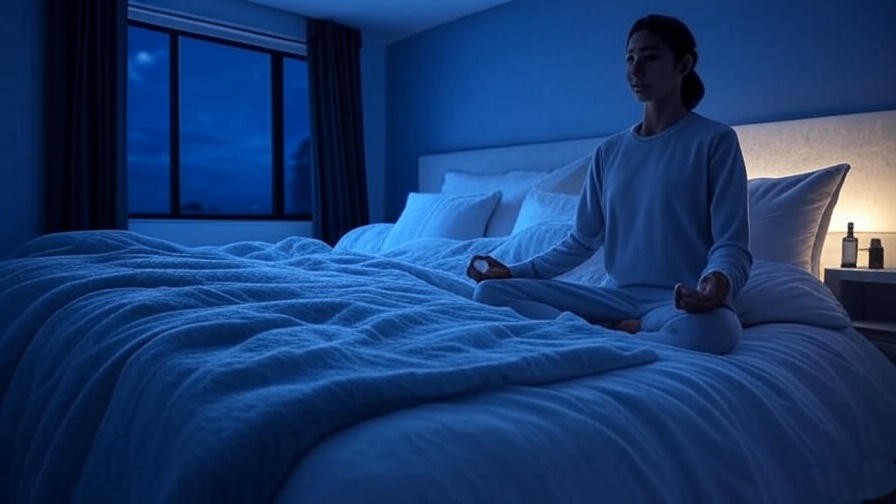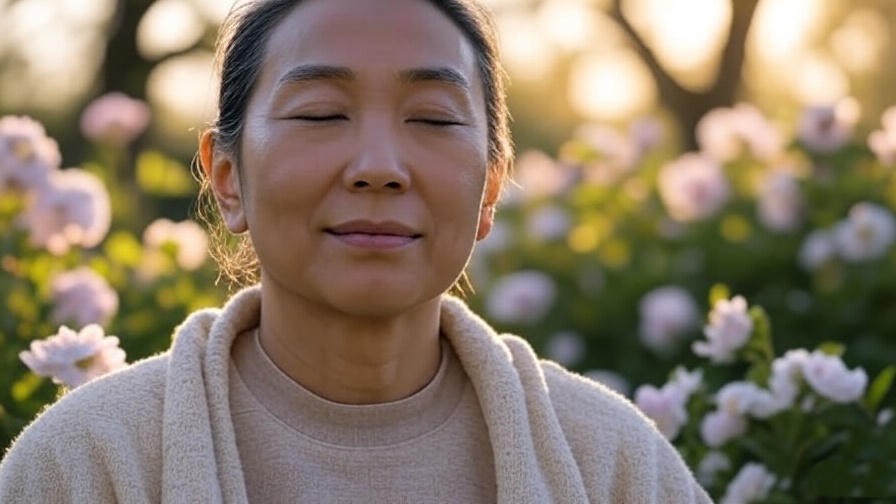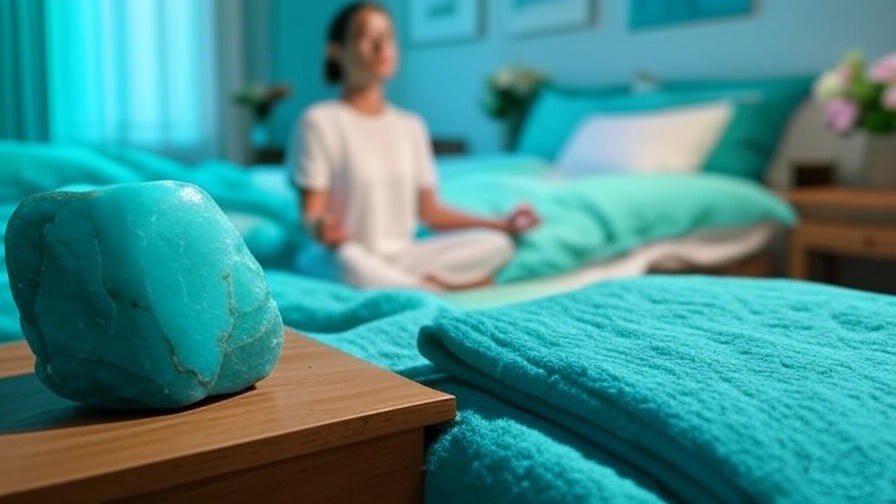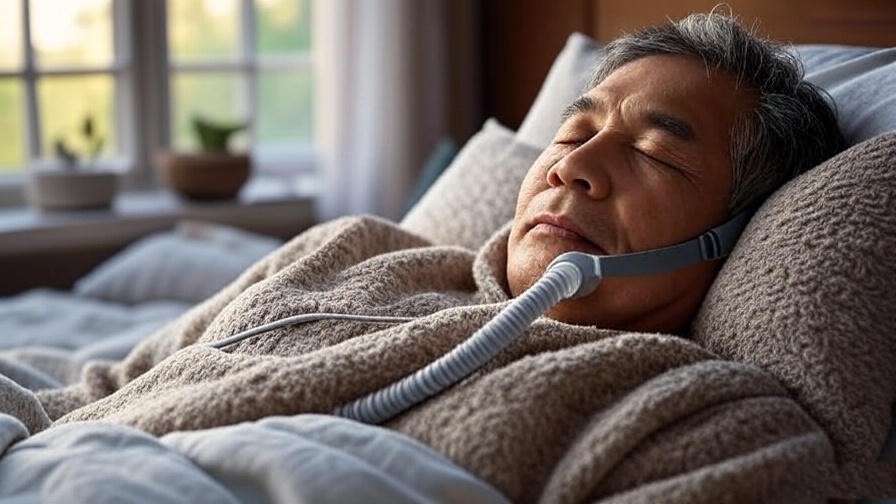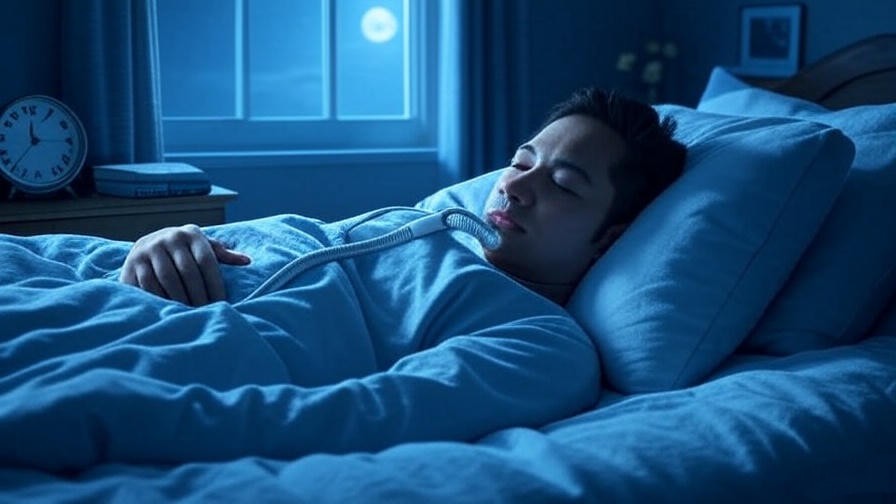Tossing and turning at 2 a.m., staring at the ceiling while your mind races—sound familiar? You’re not alone. Insomnia plagues one in three adults, robbing them of rest and leaving them drained, irritable, and unfocused. But what if you could unlock a superior sleep antidote to finally conquer sleepless nights? This isn’t about quick fixes or pills—it’s about holistic, evidence-based strategies that transform your sleep quality naturally. In this guide, we’ll explore seven proven methods rooted in science and wellness to help you fall asleep faster, stay asleep longer, and wake up refreshed. Better sleep isn’t just a dream; it’s the foundation of happiness, mental clarity, and holistic well-being. Ready to reclaim your nights? Let’s dive into the ultimate sleep solution.
Understanding Insomnia and Its Impact
What Is Insomnia?
Insomnia is more than an occasional restless night. It’s a sleep disorder characterized by difficulty falling asleep, staying asleep, or waking up too early and feeling unrefreshed. Acute insomnia may last a few nights, often triggered by stress or a disruptive event. Chronic insomnia, however, persists for at least three nights a week over three months, according to the National Sleep Foundation. Approximately 30% of adults experience insomnia symptoms, with 10% meeting criteria for a clinical diagnosis. Symptoms include daytime fatigue, irritability, and trouble concentrating, all of which can erode your quality of life.
Why Insomnia Hurts Your Well-Being
Poor sleep doesn’t just leave you groggy—it wreaks havoc on your physical and mental health. Chronic sleep deprivation is linked to weakened immunity, increased risk of heart disease, and weight gain due to disrupted hunger hormones. Mentally, insomnia fuels anxiety, depression, and reduced cognitive function, making it harder to focus or find joy in daily life. For those passionate about holistic well-being, poor sleep also disrupts meditation practices, dream vividness, and emotional balance. Addressing insomnia isn’t just about rest—it’s about nurturing your mind, body, and spirit for a happier, healthier you.
The Science Behind the Superior Sleep Antidote
Why Holistic Strategies Work
Unlike sleeping pills, which may mask symptoms but carry risks like dependency, holistic strategies target the root causes of insomnia—stress, lifestyle imbalances, and environmental factors. Research from the Journal of Sleep Research (2023) shows non-pharmacological approaches, like mindfulness and lifestyle changes, can reduce insomnia severity by up to 50% in some cases. These methods work by calming the nervous system, regulating hormones like cortisol, and aligning your body’s natural rhythms. The result? Sustainable, restorative sleep without side effects.
The Role of Mind-Body Connection
Your mind and body are deeply interconnected, especially when it comes to sleep. Stress activates the sympathetic nervous system, keeping you in “fight or flight” mode and blocking relaxation. Practices like meditation and deep breathing shift you into the parasympathetic “rest and digest” state, promoting calm. Additionally, your circadian rhythm—the body’s internal clock—relies on consistent cues like light exposure and bedtime routines to signal when it’s time to sleep. By strengthening this mind-body connection, holistic strategies create the perfect conditions for deep, rejuvenating rest.
The 7 Proven Holistic Strategies for Better Sleep
Strategy 1: Optimize Your Sleep Environment
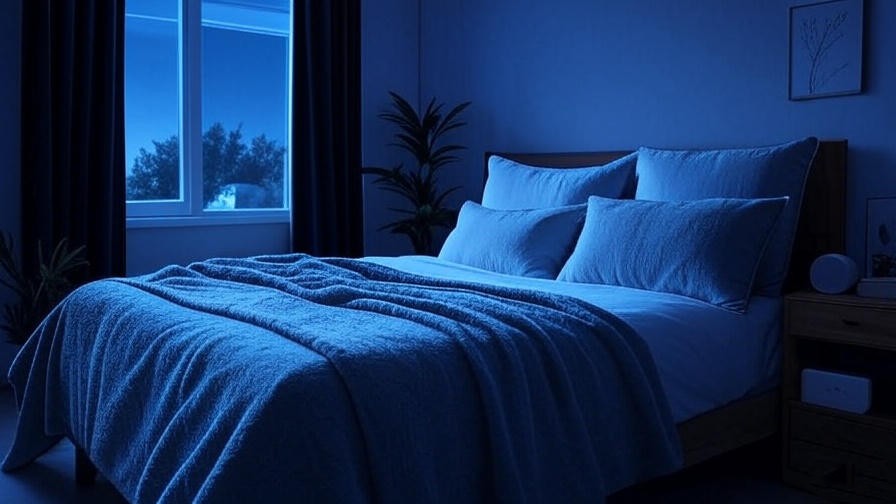
Your bedroom is your sleep sanctuary, and its setup can make or break your rest. The ideal sleep environment is dark, cool (60-67°F, per the National Sleep Foundation), and quiet. Blackout curtains block disruptive light, which suppresses melatonin production, while a white noise machine can mask sounds like traffic or snoring. Invest in a comfortable mattress and breathable bedding to enhance physical comfort. “A well-designed sleep environment signals to your brain that it’s time to unwind,” says Dr. Sarah Mitchell, a sleep specialist at the Cleveland Clinic. Small changes, like removing electronics or adding soft lighting, can transform your space into a haven for rest.
Strategy 2: Establish a Consistent Sleep Routine
Your body thrives on consistency. Going to bed and waking up at the same time every day—even on weekends—aligns your circadian rhythm, making it easier to fall asleep and wake up refreshed. Aim for a bedtime routine that starts 30-60 minutes before sleep. For example, at 10 PM, dim the lights, sip herbal tea, and read a calming book. Avoid screens, as blue light from phones or laptops can delay melatonin release by up to 3 hours, per a 2022 Sleep Medicine study. A predictable routine trains your brain to anticipate sleep, reducing nighttime restlessness.
Strategy 3: Practice Mindfulness and Meditation
Mindfulness and meditation are powerful tools for calming a racing mind, a common insomnia trigger. A 2019 study in JAMA Internal Medicine found that mindfulness-based interventions improved sleep quality in 60% of participants with insomnia. Try a 5-minute body scan meditation before bed: lie down, close your eyes, and focus on relaxing each body part from head to toe. Apps like Headspace or Calm offer guided sessions tailored for sleep. “Meditation rewires your brain to let go of stress,” says mindfulness expert Dr. Jon Kabat-Zinn. Even beginners can start with deep breathing to ease into a restful state.
Strategy 4: Leverage Nutrition for Sleep

What you eat impacts how you sleep. Foods rich in melatonin, magnesium, or tryptophan—like cherries, almonds, and kiwi—promote relaxation and better sleep quality. A 2021 study in Nutrients found that eating two kiwis an hour before bed improved sleep onset by 13%. Conversely, avoid sleep disruptors like caffeine (found in coffee, tea, and chocolate), alcohol, and heavy meals, which can cause indigestion or disrupt REM sleep. Try a sleep-friendly snack, like a small bowl of oatmeal with banana, to stabilize blood sugar and signal relaxation. Recipe Tip: Blend 1 cup almond milk, ½ banana, and a teaspoon of honey for a soothing bedtime drink.
Strategy 5: Incorporate Gentle Movement
Physical activity doesn’t have to be intense to improve sleep. Gentle movements like yoga or stretching reduce cortisol levels and prepare your body for rest. A 2020 Sleep Health study found that 15 minutes of evening yoga shortened sleep latency (time to fall asleep) by 10 minutes on average. Try beginner-friendly poses like child’s pose, forward fold, or legs-up-the-wall for 5-10 minutes before bed. “Yoga bridges the gap between body and mind, easing you into sleep,” says yoga instructor Anna Patel. Avoid vigorous exercise within 3 hours of bedtime, as it can be stimulating.
Strategy 6: Use Aromatherapy and Essential Oils
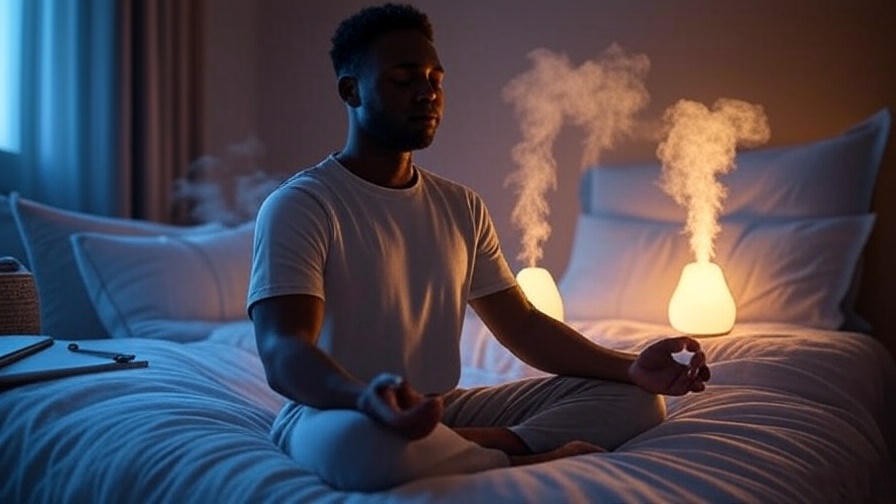
Aromatherapy harnesses the power of scent to promote relaxation and sleep. Essential oils like lavender and chamomile have been shown to reduce anxiety and improve sleep quality. A 2023 study in Frontiers in Neuroscience found that inhaling lavender oil for 30 minutes before bed increased deep sleep by 15%. Use a diffuser to disperse oils in your bedroom or add a few drops of chamomile to a pillow spray. “Aromatherapy creates a sensory cue for relaxation,” says certified aromatherapist Emily Chen. For a DIY blend, mix 5 drops of lavender, 3 drops of chamomile, and 2 ounces of water in a spray bottle. Mist lightly on linens before bed. Always dilute oils properly and avoid direct skin contact to prevent irritation.
Strategy 7: Journaling to Quiet the Mind
Racing thoughts can keep you awake, but journaling offers a simple way to offload worries. Writing down your thoughts before bed reduces stress and clears mental clutter, making it easier to fall asleep. A 2018 study in Behavioral Sleep Medicine showed that 5 minutes of journaling improved sleep onset by 9 minutes. Try a gratitude journal: write three things you’re thankful for, two things you accomplished today, and one thing you’re looking forward to tomorrow. “Journaling helps you process emotions, so your mind doesn’t replay them at night,” says psychologist Dr. Lisa Carter. Keep a notebook by your bed for consistency and to track sleep patterns or triggers over time.

Common Sleep Myths Debunked
Misinformation about sleep can lead to habits that sabotage rest. Let’s clear up some common myths with evidence-based facts:
- Myth 1: You can catch up on sleep during weekends.
Reality: While extra sleep may help temporarily, it doesn’t erase sleep debt. Irregular schedules disrupt your circadian rhythm, making insomnia worse. Consistency is key, per the American Academy of Sleep Medicine. - Myth 2: Alcohol helps you sleep better.
Reality: Alcohol may make you drowsy initially, but it fragments sleep and suppresses REM sleep, reducing overall rest quality. A 2022 Sleep journal study found alcohol increased wakefulness after 3 hours. - Myth 3: Everyone needs 8 hours of sleep.
Reality: Sleep needs vary. Most adults require 7-9 hours, but some thrive on slightly less or more, according to the National Sleep Foundation. Listen to your body’s cues rather than chasing a rigid number.
Debunking these myths empowers you to make informed choices and trust the holistic strategies outlined here.
How to Implement These Strategies for Long-Term Success
Creating Your Personalized Sleep Plan
To make these strategies work, tailor them to your lifestyle. Start by choosing 2-3 strategies that feel manageable, like optimizing your bedroom and practicing a bedtime routine. For example, set a consistent 10:30 PM bedtime, dim lights at 9:30 PM, and do a 5-minute meditation. Week 1 might look like this:
- Monday-Friday: Sleep at 10:30 PM, wake at 6:30 AM. Use blackout curtains and a white noise machine.
- Evening Routine: 15 minutes of yoga, followed by journaling.
- Nutrition: Snack on almonds or kiwi an hour before bed.
Gradually add strategies, like aromatherapy or mindfulness, as you build confidence.
Tracking Progress and Adjusting
Monitoring your sleep helps you identify what works. Use a sleep journal to note bedtime, wake time, and how refreshed you feel (1-10 scale). Apps like Sleep Cycle or Fitbit can track sleep stages, but a simple notebook works too. After 1-2 weeks, review your progress. If you’re falling asleep faster but waking at night, tweak your environment (e.g., lower room temperature) or avoid caffeine after noon. Adjust one variable at a time to pinpoint effective changes. Consistency is crucial, but flexibility ensures the plan fits your needs.
When to Seek Professional Help
While these strategies are effective for most, persistent insomnia may signal an underlying issue. If you’ve tried these methods for 4 weeks without improvement, consult a doctor or sleep specialist. Conditions like sleep apnea, restless leg syndrome, or chronic stress may require targeted treatment. Cognitive Behavioral Therapy for Insomnia (CBT-I), endorsed by the American College of Physicians, is a highly effective non-drug approach that addresses negative sleep patterns. Early intervention prevents long-term health impacts, so don’t hesitate to seek help.
The Bigger Picture: Sleep as a Pillar of Holistic Well-Being
Sleep isn’t just a necessity—it’s a cornerstone of holistic wellness. Quality rest enhances meditation by calming the mind, making it easier to focus during practice. It also supports vivid, restorative dreams, which can boost creativity and emotional processing. Most importantly, good sleep fuels happiness by stabilizing mood and energy. By adopting these seven strategies, you’re not just fighting insomnia—you’re investing in a lifestyle that nurtures your mind, body, and spirit. Think of sleep as self-care: a daily ritual that empowers you to live fully and joyfully.
Frequently Asked Questions (FAQs)
Q: How long does it take to see results from these strategies?
A: Most people notice improvements within 1-2 weeks of consistent practice. For example, a regular bedtime routine can stabilize your circadian rhythm in as little as 7 days. Track progress to stay motivated.
Q: Can I combine these strategies with sleep aids?
A: Natural aids like melatonin or herbal teas are generally safe but consult a doctor to avoid interactions. Avoid relying on pharmaceutical aids long-term, as they may reduce sleep quality.
Q: What if I have a medical condition affecting sleep?
A: Conditions like sleep apnea or thyroid issues require medical evaluation. Share your symptoms with a healthcare provider to rule out underlying causes and tailor these strategies safely.
Q: Are these strategies safe for children or pregnant women?
A: Most strategies, like mindfulness or a sleep-friendly diet, are safe but may need adjustments. For example, pregnant women should avoid certain essential oils. Consult a pediatrician or OB-GYN for personalized advice.
Conclusion
Conquering insomnia doesn’t require drastic measures—just a commitment to holistic, evidence-based strategies. From optimizing your bedroom to embracing mindfulness, these seven proven methods offer a superior sleep antidote that transforms restless nights into restful ones. Start tonight with one strategy, like a calming bedtime routine or a gratitude journal, and build from there. Your journey to better sleep is also a path to greater happiness, clarity, and well-being. Which strategy will you try first? Share your plan in the comments, and explore our articles on meditation and dreams for more ways to thrive.

